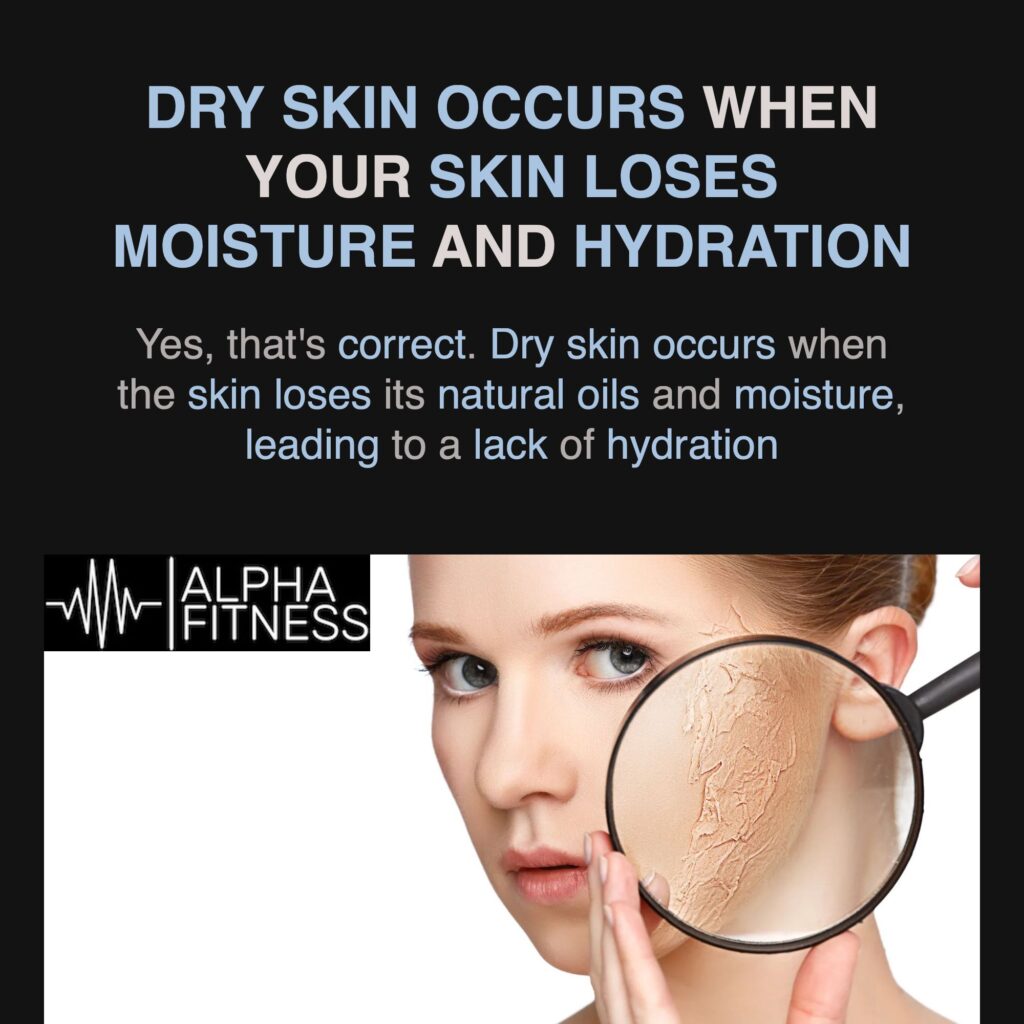
Yes, that’s correct. Dry skin occurs when the skin loses its natural oils and moisture, leading to a lack of hydration. There are several factors that can contribute to dry skin, including:
Weather Conditions: Cold, dry air in winter can strip the skin of its natural moisture. Similarly, exposure to hot and dry conditions can also contribute to dry skin.
Hot Showers and Baths: Long, hot showers or baths can remove the natural oils from the skin, leaving it dry. It’s recommended to use lukewarm water and to limit the duration of showers or baths.
Harsh Soaps and Cleansers: Some soaps and cleansers contain harsh chemicals that can strip away the skin’s natural oils, leading to dryness.
Age: As people age, the skin tends to become drier. This is because the production of natural oils decreases with age.
Medical Conditions: Certain medical conditions, such as eczema, psoriasis, and hypothyroidism, can contribute to dry skin.
Dehydration: Not drinking enough water can also result in dry skin. Hydration is essential for maintaining skin health.
Below is a list of useful links:
- How do I take care of my skin?
- Shea butter works like an emollient
- Using shea butter regularly helps the skin retain moisture
- Tomatoes helps in remove dead skin cells
- Protect your skin with lemon balm
To alleviate dry skin, it’s important to use gentle cleansers, moisturize regularly, and avoid excessive exposure to harsh environmental conditions. Drinking an adequate amount of water and maintaining a healthy diet can also contribute to overall skin health. If dry skin persists or is severe, it’s advisable to consult a dermatologist for personalized advice and treatment options.



